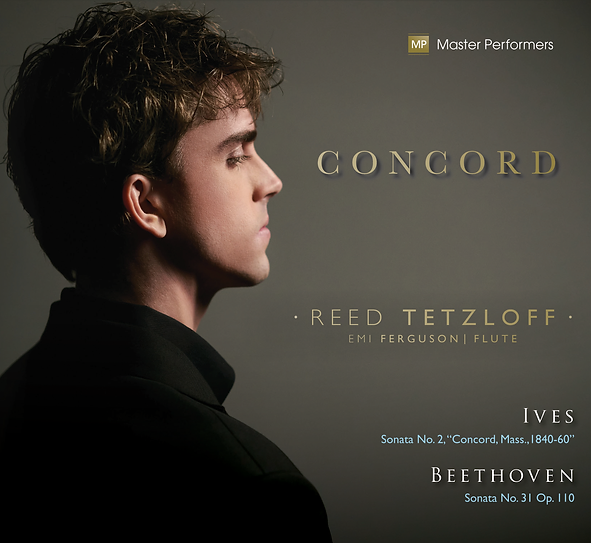Charles Ives' "Concord, Mass" was revolutionary and iconoclastic when he wrote it, no doubt the first really important modern solo piano work last century, fiendishly difficult in its extensive clusters, advanced harmonic underpinning and alternatingly volatile and beautifully mysterious arcs that require a complete pianist of extraordinary interpretive abilities. In many ways Beethoven's ravishingly expressive Sonata No. 31 Op. 110 was an earlier counterpart for its uncompromising strength and beauty.
In Reed Tetzloff we have a giant of a pianist fully prepared to take on the formidable challenges of a superlative reading of both works.
The Concord when first entering the potential repertoire of concert pianists in the later '40s-early '50s had a continual flow that needed an exceptional sense of the musicality of the phrasings. Not everyone could meet the continual demands of the work in those early days of Ives musical scholarship. Far from it. As time went by there were ever more fully thought-out performances and we now have with this release one of the real milestones in Sonata realizations. Each movement seems aptly weighted proportionately and the through-phrasing sounds convincing every minute as all holds steady and true as part of the overall journey.
Beethoven's Sonata No. 31 is the unexpectedly perfect foil for the Ives. Tetzloff makes it fully resonant and projecting and thereby shows how both works parallel one another and invite comparison when performed with equal vigor and devotion, as is the case with this wonderful program.
The Ives most definitely reflects how this music seems at last fully of our times, readily understood and beautifully lyrical in the way we now hear such things in an ideal situation. Bravo!

No comments:
Post a Comment